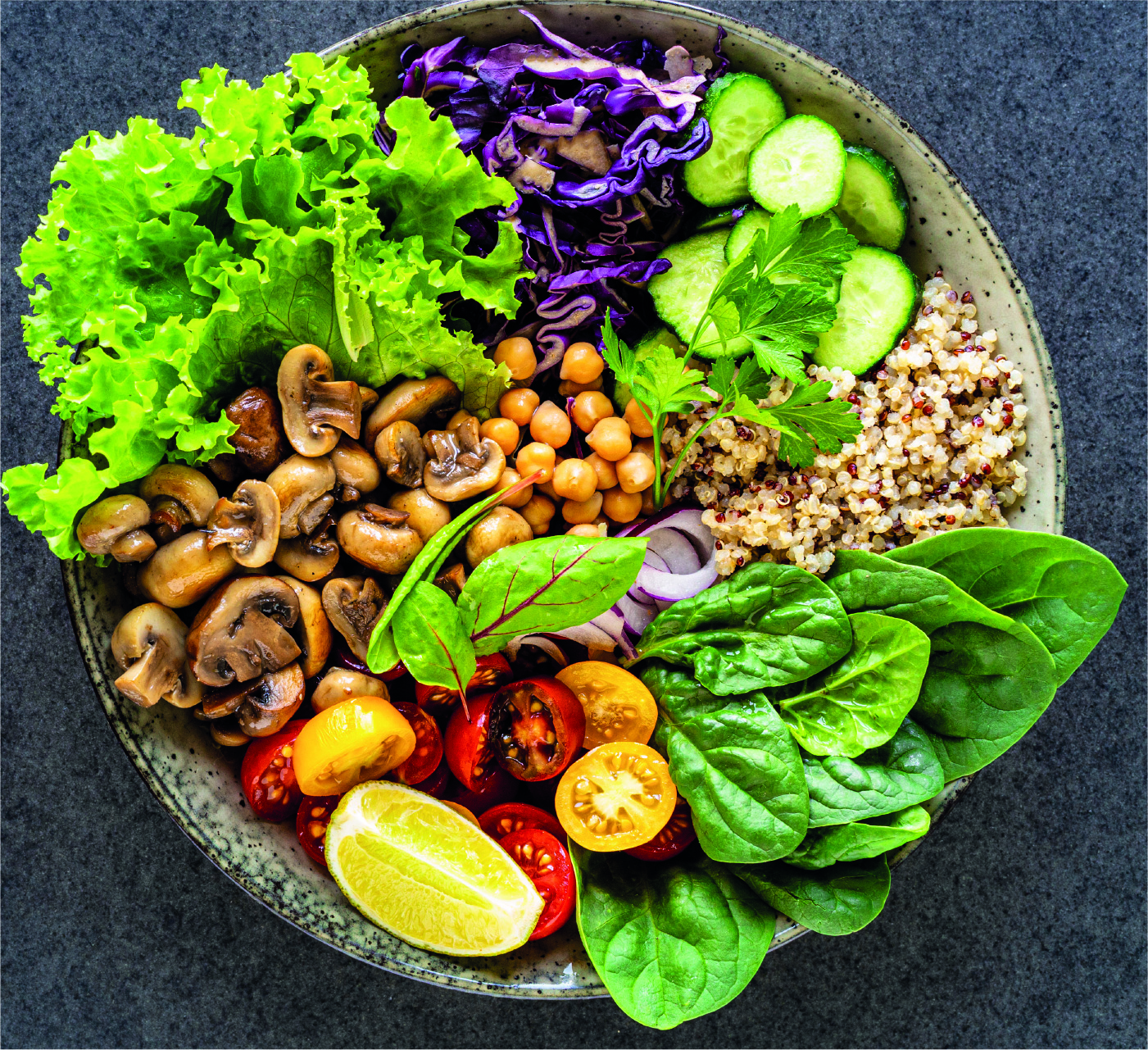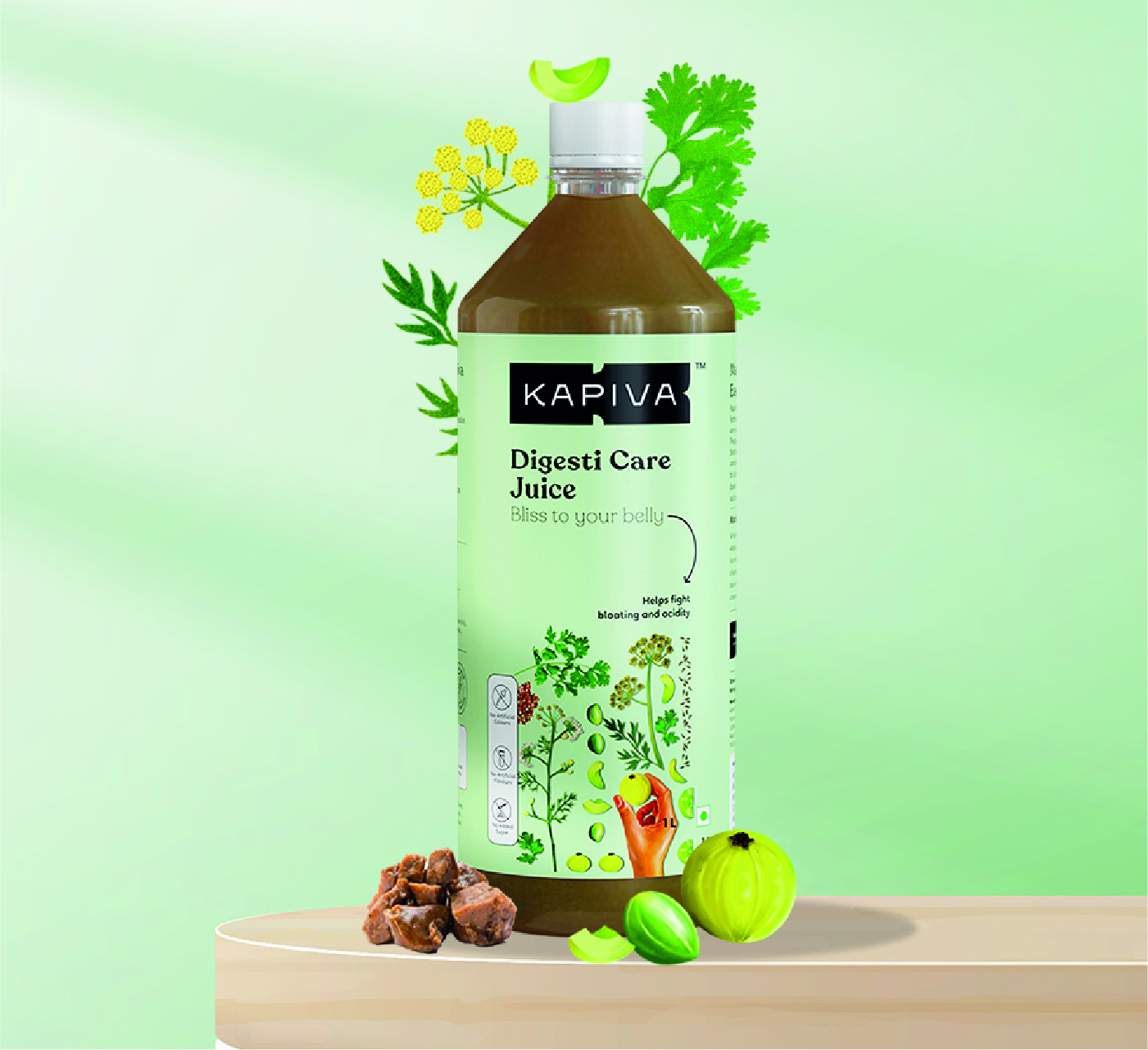Made by Ms. Sindhu Vas, M.Sc. Food Science & Nutrition Medically Reviewed by: Dr. Prajna, BAMS, MD Ayurveda…
Read MoreHave you had those moments when you’re in a nerve-racking situation and your stomach just makes things worse or you experience a sharp pain after consuming certain foods? Constipation, bloating and gas, uncomfortable heartburns, IBS, acid reflux — we all experience these digestive problems; some more often than others. The sad truth is that even though it is a common occurrence, no one really talks about gastric issues, leaving many to suffer in silence. If all these problems are all too real for you, don’t worry, we’re here to help you out! The good news is that most of these problems are easily preventable and not a cause for concern. Before learning about the common digestive system issues and the easy digestive problem home remedy, you first need to understand why it happens. Keep on reading to know more.
The digestive system is intricate as it ranges from the mouth and goes all the way to the rectum. This system not only helps the body absorb essential nutrients, but is also responsible for getting rid of the waste. While you would think it’s a simple in and out process, it is far more complicated. Minor issues can lead to digestive problems which, when left untreated, can turn chronic. This is why it’s important to differentiate the type of digestive problem you are suffering from and find an effective digestion problem solution immediately. If home remedies aren’t doing the trick, then it’s time to see the doctor.
There are multiple reasons why you may be suffering from digestive problems. While some are easily curable by consuming the best food for digestive problems, other issues like haemorrhoids, gallstones etc. may require an expert’s opinion. So, what causes that uncomfortable bloating or embarrassing gas? Well, the reason is not just one; there are multiple causes of digestive problems ranging from food to lifestyle that hinder the GI tract, leading to those dreaded digestive problems you hate.
Some common issues that affect your digestive system are:
While you have gotten a rough idea about what we’re talking about, let’s dive a little deeper into these common symptoms of digestive problems which everyone goes through and learn about the best digestion problem solution and a digestive problem home remedy that could help.
Issues like bloating and gas occur when your digestive system is unable to break down and absorb certain foods. When you are bloated, you feel full and your stomach feels tight. This can be extremely uncomfortable and for a few, it is even painful. This is one of the common symptoms of digestive problems amongst those who are lactose intolerant or who have a gluten allergy.
Irritable bowel syndrome or IBS is a common disorder that affects the large intestine and is accompanied by stomach pain or cramps. While this is a chronic issue, it can be controlled by managing your diet, lifestyle and stress.

The lower esophageal sphincter is located at the entrance of your stomach and opens every time something is consumed. Its main purpose is to let food move from your esophagus to your stomach. Once this is done it then shuts to stop food and acid from coming back out. When this entrance opens too often, the stomach acid rises up into the esophagus, causing a burning feeling in the chest. This is also one of the common symptoms of digestive problems. This can even result in excessive burping before or after meals etc.
Faecal irregularities are also one of the symptoms of digestive problems. Diarrhoea occurs when viruses, bacteria, parasites and even certain medications affect the stomach, intestines, or colon causing loose, watery stool throughout the day. Constipation, on the other hand, is when you have hard stools.
If you’re wondering if there is any digestive problem home remedy for your GI issue, the answer is yes! There are certain digestion problem solution you can take to ensure that you have a healthy gut.
The causes of digestive problems differ from person to person. So, just because a certain lifestyle habit may be the cause of bloating for someone you know, doesn’t mean it’s the same for you. The first step you need to undertake is finding your triggers. This can range from certain foods you consume, beverages, alcohol and even eating patterns. Once you figure this out, you’re already halfway to achieving a healthy GI tract.
A balanced diet is key when it comes to maintaining a healthy digestive tract. If you suffer from continuous acid reflux or heartburn, cut down on your spicy foods and include more greens in your diet. It’s also important to take your time while eating rather than trying to finish every meal as quickly as possible.

Fibre-rich foods are great for your digestive tract as they add bulk to your stool. It is especially beneficial for those who suffer from a sluggish digestive tract as it stimulates the intestines and helps prevent digestive problems like constipation, bloating, and gas. Some common fibre rich foods include avocados, whole grains, bananas, carrots and beets.
You’ve probably heard this time and time again — drink plenty of water! Water promotes good health and facilitates normal bowel function, especially when you have diarrhoea. Beverages like soda and coffee can cause digestive issues and dehydration, so cut down on the consumption and replace them with H20.
Good bacteria are present in your digestive tract which help keep your gut healthy. These bacteria help break down toxins in the body and help your body produce vitamins to keep you healthy. Probiotic foods or supplements maintain this balance of good bacteria in turn ensuring you have a healthy gut.
Whatever bodily issues you may be facing, there is an Ayurvedic solution. According to the Ayurveda books, fried foods, processed meats, and very cold foods can create an undigested residue that later transforms into toxins. They are causes of digestive problems. These are also referred to as ‘ama’ which is described as the root cause of diseases or illnesses. Here are some other best foods for digestive problems.
If you’re dealing with a sluggish digestive tract, consume a drink made with ghee, salt, and hot water. This aids in digestion and lubricates the inside of the intestines. Mix 1 tsp. Fresh ghee and 1/2 tsp. Salt into 1 1/4 cup hot water. Stir well and consume one hour after dinner. You can also try the Kapiva Triphala Juice which helps fight constipation and improves digestion.

Adding fennel seeds to a glass of warm water can help ease bloating issues and gas. These seeds relax the passage in your gastrointestinal tract, allowing gas to pass while reducing the symptoms of bloating.
For overall gut health, the Kapiva Probiotic With Amla Gummies is the best food for digestive problems out there. These probiotic gummies break down the bile in the gut and balance out the friendly bacteria in your digestive system.
Now that you’ve gotten an idea of the symptoms of digestive problems and why you’re facing so many stomach issues, you can take the necessary steps to improve your gut health.


We are a team of food scientists and Ayurveda experts at Kapiva. Our mission is to raise awareness and educate people on ancient principles and herbs found in traditional texts. We work together to develop the most comprehensive content on Ayurveda which is grounded in peer-reviewed, scientific research.

Made by Ms. Sindhu Vas, M.Sc. Food Science & Nutrition Medically Reviewed by: Dr. Prajna, BAMS, MD Ayurveda…
Read More
Made by Ms. Sindhu Vas, M.Sc. Food Science & Nutrition Medically Reviewed by: Dr. Prajna, BAMS, MD Ayurveda…
Read More
Made by Ms. Sindhu Vas, M.Sc. Food Science & Nutrition Medically Reviewed by: Dr. Prajna,…
Read More
Made by Ms. Sindhu Vas, M.Sc. Food Science & Nutrition Medically Reviewed by: Dr. Prajna, BAMS, MD Ayurveda…
Read More